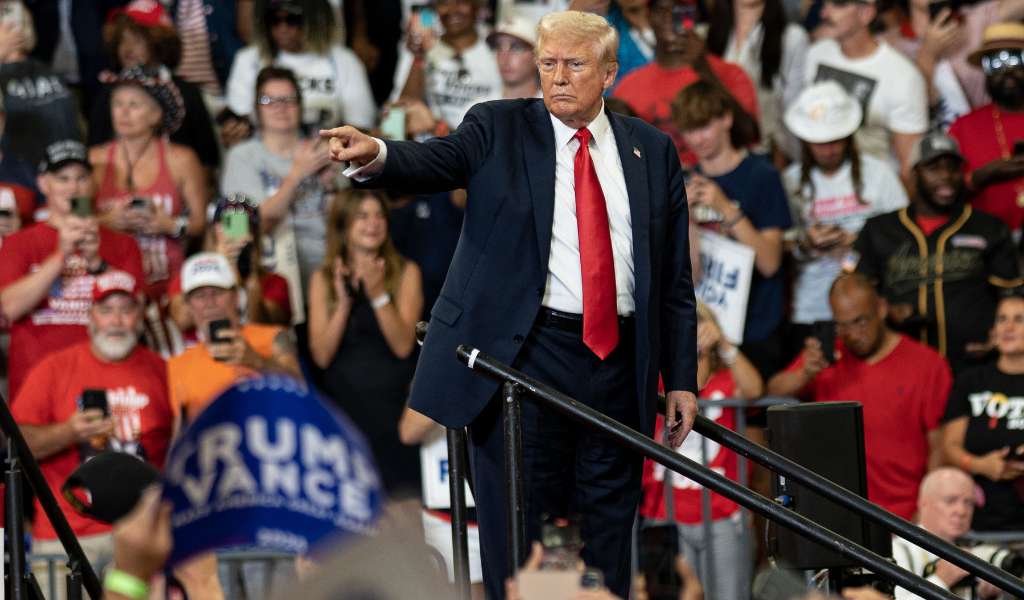The American election result is a surprising and significant blow to those of us who believe in equitable and sustainable development globally. It tells us that the argument made for progressive policies during the election failed, and that those promoting them did not sufficiently understand or connect with the needs and aspirations of voters struggling with the cost of living and suffering from inherent inequities. It is perhaps telling that nine out of ten voters polled stated that they were concerned or somewhat concerned about the price of groceries.

In a victory that was more emphatic than his 2016 win, exit polls suggest that one in three Black, Latino and Asian voters chose Donald Trump and his campaign’s efforts to win the votes of young men also seem to have paid off.
Impact on the rest of the world
The Trump win, and Republican Senate majority has very significant consequences for the USA domestically and for the rest of the world – most notably with greater risks now for the outlook in the Middle East and Ukraine, and also for action on climate change.
During his last Presidency (2017 – 2021) Donald Trump proposed huge cuts to the USAID budget, thankfully stopped by the US Congress at the time, and cut funding to organisations providing sexual and reproductive health and rights (SRHR). This time round we know the impact that his choice of Supreme Court Judges has had on access to abortion domestically – albeit with some States voting to widen access to abortion this week – and we can assume that there will be a withdrawal of USAID funding for the provision of women’s reproductive health globally.
On broader foreign policy issues, we know from his election campaign that his policy positions include US withdrawal from NATO, a willingness to consider a rejection of a two-state solution for Israel and Palestine, and broad isolationist and anti-migrant views.
Find better ways to understand people
In the face of this, more progressive governments around the world, including the UK, civil society and research institutes like IDS, need to stand firm against authoritarian ‘strong man’ politics. We need to step up to find better ways to understand and include people who don’t see a better future for themselves and their families through policies such as stronger public services, energy transitions and greater gender equality.
The election is proof – if ever that was needed – that action to transform societies cannot come from the top down, but must be developed from the bottom-up, with people and communities directly affected. Despite being a convicted felon, known misogynist, user of racist rhetoric and instigator of a violent insurrection, the majority of Americans seemed to have voted for him because he understood what they wanted to hear and was able to play on their fears about the future. As my colleague John Gaventa has previously explored, Trump’s success in many rural areas has been based on their sense of powerlessness amid rapid change, something that Vice President Harris was unable to counter.
For IDS, this is a reminder of the value of participatory decision-making, to enable individuals to feel a sense of ownership over decisions about their lives. Participation is a principal, and set of practices, that IDS has been committed to for decades, and at a challenging time such as this, it provides a guide to keep us moving forward.
Forge solidarities to support critical issues
Progressive funders – country donors and philanthropists – will also need to galvanise their efforts and forge solidarities with partners to help support rights and issues interconnected with climate change impacts, food and agriculture, poverty and inequalities and global health. One issue that is even more urgent now in the context of President Trump is women’s and LGBTQI+ rights, as outlined in a new IDS report we will be launching on 21 November.
Although the immediate outlook is gloomy, I’m an optimist and feel confident that we and many other allies around the world can work together for positive change. I know there are many friends in the US who do not share Trump’s view of the world, and that they will be doing all they can to reduce the negative impact of his administration.
Reasons for hope
I look to the re-emergence of Brazil as a development leader, the leadership shown by student groups in Bangladesh earlier this year in forcing out Sheikh Hasina, and even the anti-racism protests we saw in the summer in Brighton, UK, where IDS is based, as reasons for optimism. I have also just had a really stimulating experience in Poland with enthusiastic, committed students from around the world discussing actions to decolonise knowledge for development. Even though the geopolitical situation is bleak, I have genuine hope for a brighter future because there are many who believe that this is necessary, and possible.
The next four years will be difficult. Trump’s victory will likely bolster populist and authoritarian forces around the world. But whilst many of us may feel despondent right now, this is not the time to give up. We must work together to advance solutions for more equitable and sustainable societies. The world simply cannot afford to put vital work on the climate crisis, inequality, gender justice, chronic poverty, or peacebuilding on hold for four years.
